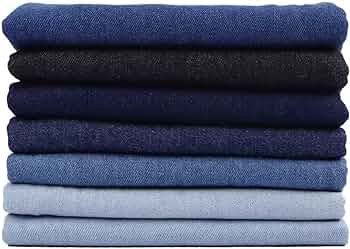Jeans articles

white jeans
White denim jeans are incredibly versatile and can be styled in numerous ways to suit various occasions and fashion preferences. They can be dressed up or down effortlessly, making them a versatile wardrobe staple for both casual and more formal settings. Their neutral color allows for easy pairing with a wide range of tops and accessories, offering endless possibilities for creating different looks. Whether you’re aiming for a relaxed, casual appearance with a simple t-shirt or a more polished look with a blouse and heels, white denim jeans can adapt to fit the occasion and your personal style.

Blue denim jeans
Blue denim jeans have a timeless appeal that transcends trends and generations. Their classic blue hue, ranging from light wash to dark indigo, complements various skin tones and can be effortlessly styled for casual or semi-formal occasions. Whether you prefer a relaxed fit for comfort or a slim fit for a more tailored look, blue denim jeans offer versatility and comfort. They can be paired with almost anything, from t-shirts and sneakers for a laid-back vibe to dress shirts and boots for a more polished ensemble. The enduring popularity of blue denim jeans lies in their ability to blend comfort, style, and versatility, making them a go-to choice for everyday wear.

black jeans
Black denim jeans offer a sleek and versatile option that can easily transition from casual to more formal settings. Their dark color adds a touch of sophistication and makes them suitable for a variety of occasions, from everyday wear to evening outings. Black denim jeans can be effortlessly paired with a range of tops, including t-shirts, sweaters, blouses, or even blazers, allowing for diverse styling options. The neutral hue also lends itself well to creating monochromatic looks or contrasting with vibrant colors for a bold statement. Overall, black denim jeans combine style, versatility, and a modern edge, making them a staple in many wardrobes.
- Weight: Denim fabric is often categorized by its weight per square yard (oz/yd²). Lightweight denim ranges from 6 to 12 oz/yd², medium-weight from 12 to 16 oz/yd², and heavyweight above 16 oz/yd². Heavier weights generally indicate denser, more durable fabric suitable for rugged wear.
- Material: Traditional denim is made from 100% cotton, known for its durability and breathability. However, blends with elastane (spandex) or polyester are common for added stretch and comfort. The quality of the cotton used, such as long-staple fibers, can affect the fabric’s strength and smoothness.
- Weave: Denim typically features a twill weave, characterized by diagonal ribbing on the fabric surface. The most common twill weave for denim is the 3×1 or 2×1, which affects the fabric’s texture and durability. A tighter, more uniform weave generally indicates higher quality.
- Dyeing: Denim is traditionally dyed with indigo, resulting in a deep blue color that fades over time with wear and washing. The quality of dyeing affects colorfastness and the development of unique fading patterns, which are highly valued in premium denim.
- Finish: Various finishing treatments enhance denim fabric quality. Sanforization, for example, pre-shrinks the fabric to minimize shrinkage after washing. Mercerization can increase fabric strength and luster. Additionally, singeing burns off loose fibers, improving the fabric’s smoothness and appearance.
- Construction: Quality denim jeans feature well-executed construction details such as reinforced stitching, bartack stitches at stress points, and sturdy hardware like rivets and buttons. These elements contribute to the durability and longevity of the garment.
- Brand and Reputation: Established denim brands often prioritize quality in their manufacturing processes, sourcing premium materials and employing skilled craftsmanship. Their reputation for durability, comfort, and style can be indicative of denim fabric quality.
Denim fabric
Denim fabric’s best quality lies in its versatility. It seamlessly blends durability with a timeless aesthetic, making it suitable for a wide range of garments from jeans to jackets. This adaptability ensures that denim remains a staple in fashion, continually evolving while retaining its classic appeal and practicality.

